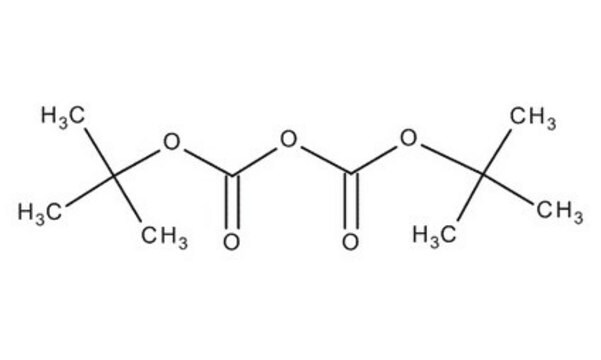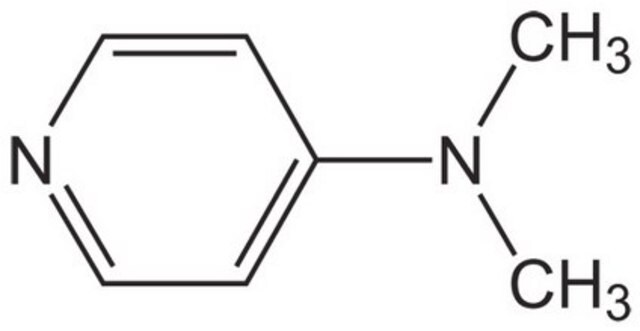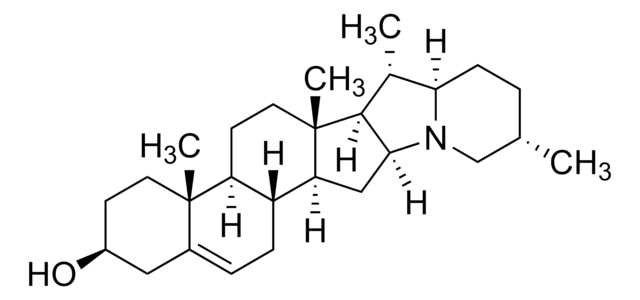34660
Di-tert-butyl dicarbonate
≥98.0% (GC), for peptide synthesis
Synonym(s):
Boc2O, Boc anhydride, Di-tert-butyl pyrocarbonate
About This Item
Recommended Products
product name
Di-tert-butyl dicarbonate, ≥98.0% (GC)
Quality Level
Assay
≥98.0% (GC)
form
solid or liquid
refractive index
n20/D 1.409 (lit.)
bp
56-57 °C/0.5 mmHg (lit.)
mp
23 °C (lit.)
density
0.95 g/mL at 25 °C (lit.)
application(s)
peptide synthesis
functional group
carbonate
storage temp.
2-8°C
SMILES string
CC(C)(C)OC(=O)OC(=O)OC(C)(C)C
InChI
1S/C10H18O5/c1-9(2,3)14-7(11)13-8(12)15-10(4,5)6/h1-6H3
InChI key
DYHSDKLCOJIUFX-UHFFFAOYSA-N
Looking for similar products? Visit Product Comparison Guide
General description
Automated Boc protection and deprotection can be done using Synple Automated Synthesis Platform (SYNPLE-SC002), Boc protection cartridges ((SYNPLE-B001), (SYNPLE-B002), and Boc deprotection cartridges (SYNPLE-B011)
Application
- An azobenzene amino acid(aa).
- N-tert-butoxycarbonyl-3,4-methylenedioxymethamphetamine (t-BOC-MDMA) from MDMA.
It can also be used as a reagent:
- To introduce acid-labile Boc-protecting group in amino acids, peptides, and proteins.
- To prepare styrene derivatives by Heck olefination of aromatic carboxylic acids in the presence of a Pd catalyst.
- To synthesize oxazolidin-2-ones and imidazolidin-2-ones by isocyanation of 1,2-aminoalcohols and 1,2-diamines using DMAP as a catalyst.
- In the preparation of N-tert-butoxycarbonyl-3,4-methylenedioxymethamphetamine (t-Boc-MDMA) from MDMA.
- For the conversion of amines to corresponding isocyanates, carbamates, and urea derivatives.
- In the N-BOC-ylation of amides.
- In the N-BOC-ylation of sensitive compounds under non-aqueous conditions.
Warning
Signal Word
Danger
Hazard Statements
Precautionary Statements
Hazard Classifications
Acute Tox. 1 Inhalation - Eye Dam. 1 - Flam. Liq. 3 - Skin Irrit. 2 - Skin Sens. 1 - STOT SE 3
Target Organs
Respiratory system
Storage Class Code
3 - Flammable liquids
WGK
WGK 3
Flash Point(F)
98.6 °F - closed cup
Flash Point(C)
37 °C - closed cup
Personal Protective Equipment
Choose from one of the most recent versions:
Already Own This Product?
Find documentation for the products that you have recently purchased in the Document Library.
Customers Also Viewed
Our team of scientists has experience in all areas of research including Life Science, Material Science, Chemical Synthesis, Chromatography, Analytical and many others.
Contact Technical Service









